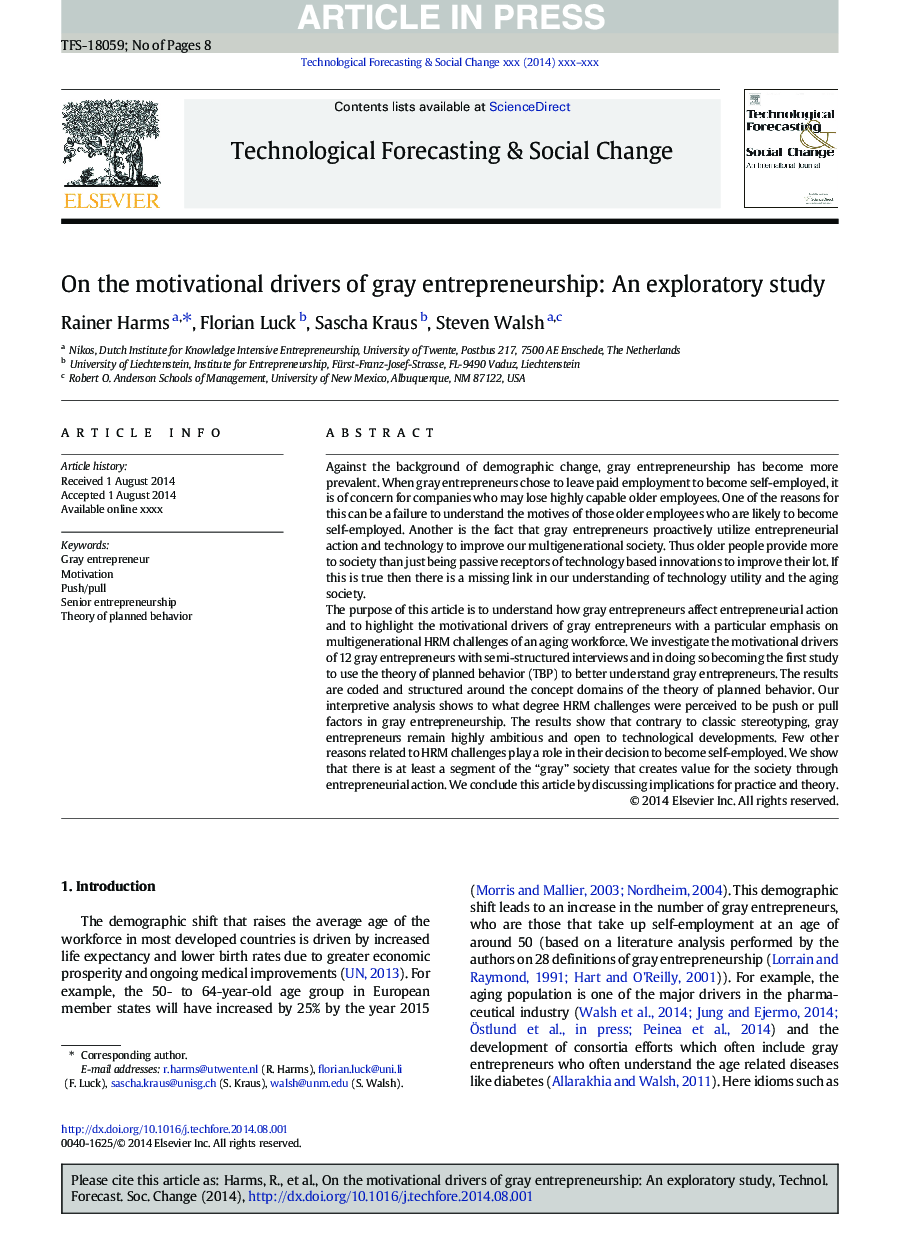| Article ID | Journal | Published Year | Pages | File Type |
|---|---|---|---|---|
| 7257120 | Technological Forecasting and Social Change | 2014 | 8 Pages |
Abstract
The purpose of this article is to understand how gray entrepreneurs affect entrepreneurial action and to highlight the motivational drivers of gray entrepreneurs with a particular emphasis on multigenerational HRM challenges of an aging workforce. We investigate the motivational drivers of 12 gray entrepreneurs with semi-structured interviews and in doing so becoming the first study to use the theory of planned behavior (TBP) to better understand gray entrepreneurs. The results are coded and structured around the concept domains of the theory of planned behavior. Our interpretive analysis shows to what degree HRM challenges were perceived to be push or pull factors in gray entrepreneurship. The results show that contrary to classic stereotyping, gray entrepreneurs remain highly ambitious and open to technological developments. Few other reasons related to HRM challenges play a role in their decision to become self-employed. We show that there is at least a segment of the “gray” society that creates value for the society through entrepreneurial action. We conclude this article by discussing implications for practice and theory.
Keywords
Related Topics
Social Sciences and Humanities
Business, Management and Accounting
Business and International Management
Authors
Rainer Harms, Florian Luck, Sascha Kraus, Steven Walsh,
